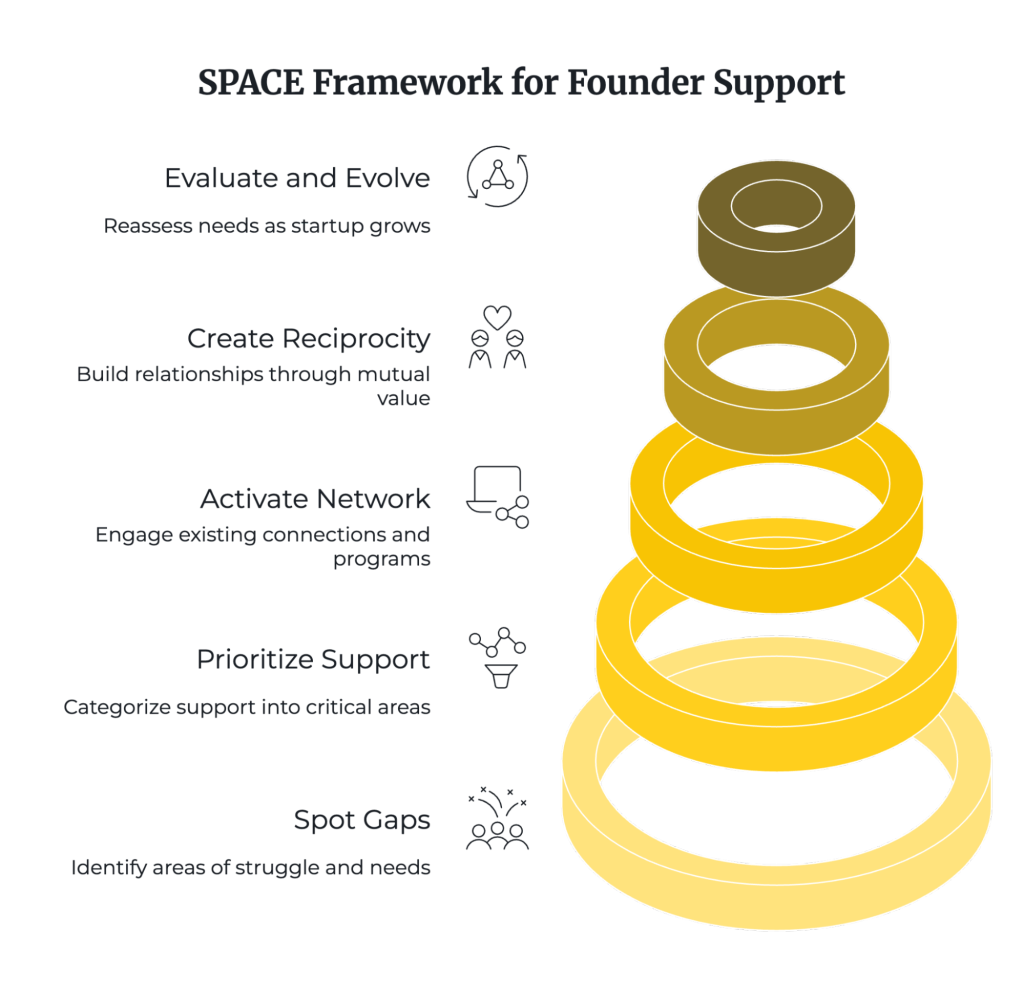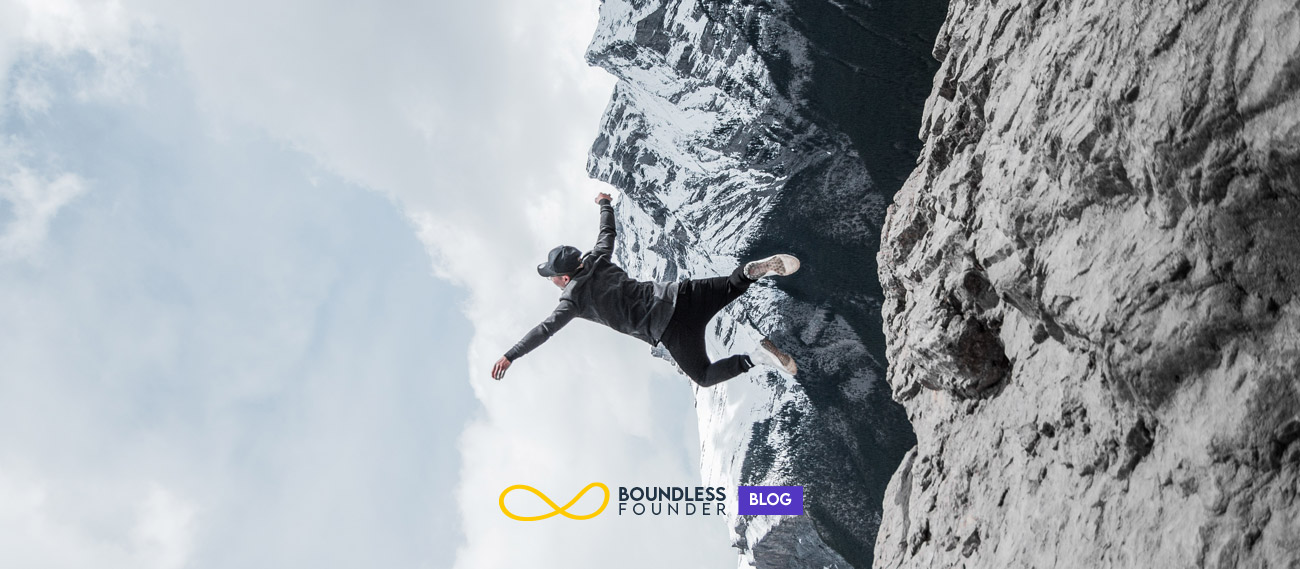The Five Days I Hid Our Failed Acquisition From My Wife
Two hours before signing the papers, our acquisition deal collapsed. A larger company had swooped in with a better offer for our potential buyer. Years of work, months of due diligence—all evaporated in a single phone call. But here’s what made it worse—I couldn’t bring myself to tell my wife. For five agonizing days, I carried this crushing weight alone, even going through with our planned celebration dinner, pretending everything was fine. She had such high hopes, thinking we were about to hit the finish line. I couldn’t bear to shatter that moment. When I finally told her, watching her break down in tears, I realized something profound: my attempt to protect her had actually caused more pain. That moment taught me the most dangerous myth in entrepreneurship—the idea that we must face our battles alone. It also made me realize just how vital a Founder Mental Health Community is, not just for emotional resilience but for navigating the darkest moments without breaking in isolation.
The Solo Entrepreneur Myth Is Killing Our Startups
The romanticized image of the lone founder conquering the world through sheer willpower isn’t just misleading—it’s actively harmful. Research shows that 72% of founders report that entrepreneurship has negatively impacted their mental health, yet most continue believing they must shoulder this burden alone. The statistics paint a stark picture: founders are 50% more likely to report having a mental health condition compared to the general population, with 30% experiencing depression compared to just 7% of the general US population.
This crisis stems from unique stressors that compound when faced in isolation. Decision fatigue from constant critical choices, financial pressure that never sleeps, and the dangerous fusion of personal identity with business success create a perfect storm. As one study found, the entrepreneurial path can be “lonely and psychologically perilous,” especially when founders believe they must navigate it alone. The reality? Every successful entrepreneur I’ve met—including those who built billion-dollar companies—had a robust support system they actively cultivated.
Understanding the Architecture of Entrepreneurial Support
Through my journey and working with hundreds of founders, I’ve discovered that entrepreneurial support isn’t monolithic—it’s a carefully constructed ecosystem addressing different needs. Think of it as building a house: you need a foundation (emotional support), framework (mentorship), walls (peer networks), utilities (professional services), and a roof (operational resources). Each element serves a distinct purpose, and missing any creates vulnerabilities that can bring down the entire structure.
The Founder Mental Health Pledge, signed by organizations like Y Combinator and Techstars, recognizes this multi-dimensional need. It’s not just about having people to talk to—it’s about creating a comprehensive support architecture that addresses the whole founder, not just the business builder. This includes emotional support for processing the inevitable ups and downs, mentorship for navigating uncharted waters, peer connections for shared learning, professional help for specialized challenges, and operational support for execution.
My Week of Isolation: When “Protecting” Others Backfires
During those five days of hiding our failed acquisition, I thought I was being strong. I convinced myself that shielding my wife from disappointment was the noble thing to do. But isolation bred more problems. I couldn’t sleep, my decision-making deteriorated, and I found myself trapped in what I now call the thoughts-emotions loop—each worried thought triggering stronger emotions, which sparked more catastrophic thinking. By trying to be the “strong” entrepreneur who handles everything alone, I was actually becoming weaker.
When I finally broke down and told her, something unexpected happened. Instead of the devastation I feared, she became my anchor. “Why didn’t you tell me sooner?” she asked through her tears. “We’re supposed to face these things together.” That’s when I understood: my entrepreneurial journey wasn’t just mine—it was ours. And by excluding her from the difficult moments, I was robbing us both of the opportunity to grow stronger together. Within 24 hours of sharing the burden, my mind cleared. We strategized together, and I approached the situation with renewed energy. I took the failed letter of intent and began shopping it to other buyers. Within days, we had five new prospects, and months later, sold the company for far more than the original offer.
Building Your Founder Support System: The SPACE Framework
After learning this lesson the hard way, I developed the SPACE framework for building comprehensive founder support:
S – Spot Your Gaps: Conduct an honest assessment of where you’re struggling. Are you emotionally overwhelmed? Lacking strategic guidance? Missing peer connections? Research shows that over 90% of founders need help with holistic wellbeing, yet many can’t articulate specific needs.
P – Prioritize Support Types: Not all support is equal. Map your needs to these five critical categories:
- Emotional (therapists, close confidants, family)
- Mentorship (experienced founders, industry experts)
- Peer (founder groups, mastermind circles)
- Professional (coaches, specialized services)
- Operational (advisors, service providers)
A – Activate Your Network: Start with existing connections. That college friend who became a founder? Reach out. The advisor you met at a conference? Schedule coffee. Join formal programs like accelerators or founder communities like Founders Network that provide structured support.
C – Create Reciprocity: Support systems thrive on mutual value. Share your expertise, make introductions, and contribute to others’ success. The strongest networks are built on genuine relationships, not transactional exchanges.
E – Evaluate and Evolve: Your support needs change as your startup grows. Quarterly, reassess what’s working and what gaps have emerged. Early-stage founders might need more emotional support, while scaling founders often need operational expertise.

The Transformation: From Isolation to Integration
Implementing the SPACE framework transforms more than just your support network—it fundamentally changes how you experience entrepreneurship. Founders who actively engage in a Founder Mental Health Community report dramatic improvements in both personal wellbeing and business outcomes. They make better decisions because they have diverse perspectives to draw from. They recover faster from setbacks because they process challenges with trusted advisors. They avoid common pitfalls because mentors share hard-won wisdom.
My own transformation was profound. That isolation I chose during the failed acquisition? It became my teacher. Now, when facing major challenges, my first instinct isn’t to retreat but to reach out. When another acquisition attempt failed two years later, I immediately activated my support network—calling my mentor for perspective, processing emotions with my wife (no more five-day delays!), strategizing with advisors, and drawing strength from founder peers who’d navigated similar disappointments. The result? What once would have paralyzed me for weeks was resolved in days.
Studies confirm this impact: mentored entrepreneurs are significantly more likely to succeed, and those with strong peer networks report higher resilience and faster growth. The Conscious Ambition’s Tools4Founders research found that founders with comprehensive support systems are better equipped to handle the inevitable challenges of building a business.
Your Next Step: Join a Community That Understands
The myth of the solo entrepreneur ends today. Building a successful startup while maintaining your mental health isn’t about being stronger—it’s about being smarter about leveraging support. Whether you’re facing your first crisis or your fifth pivot, remember: every successful founder has a story about the mentor who changed their perspective, the peer who shared a critical insight, or the moment vulnerability led to breakthrough.
Ready to build your founder support system? Join the Boundless Founder community where hundreds of entrepreneurs are breaking the isolation trap together. Access our Support System Building Workbook, connect with founders at your stage, and participate in weekly sessions designed to strengthen your mental resilience while growing your business. Because no entrepreneur succeeds alone—and you don’t have to try.
Join the Boundless Founder Community
For those ready to dive deeper into building mental resilience and support systems, The Inside-Out Entrepreneur provides a complete framework for developing the internal strength and external networks every founder needs.











Responses